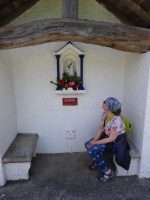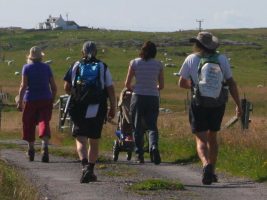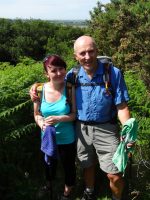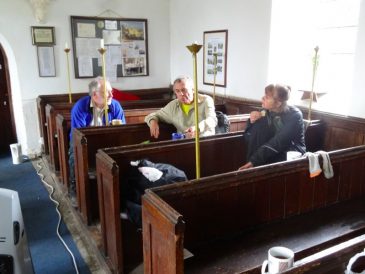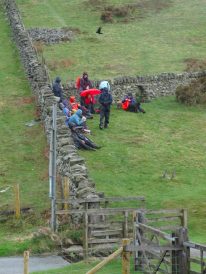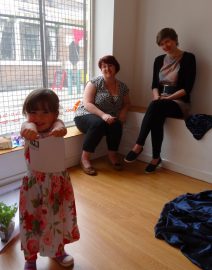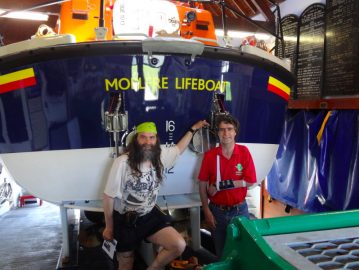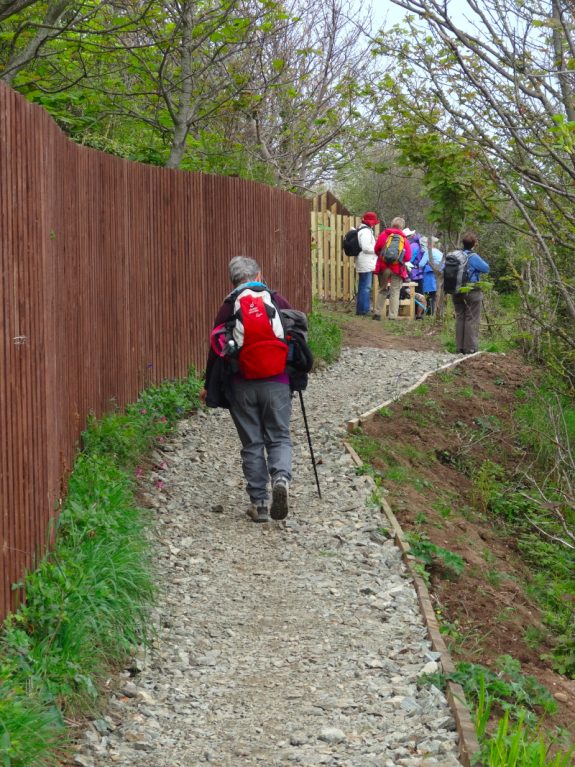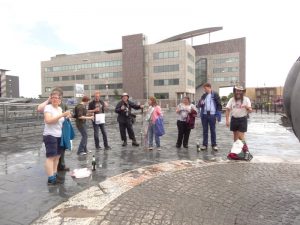The latest paper based on Alan Walks Wales data has been published in Interacting with Computers at Oxford University Press.
The paper Walking: A Grounded Theory of Social Engagement and Experience is based principally on Stavros Asimakopoulos’ grounded theory analysis of theAlan Walks Wales blogs and is focused on the emerging themes about social engagement and social navigation.
Grounded theory is an analysis technique with roots in the social sciences, and Stavros has used it for many years to study domains from university web sites to sales forecasting, and, in this case, me walking! Grounded theory tries to start by assuming nothing, taking the data (in this case my blogs) at face value, building concepts from them, and then organising them into overarching theoretical themes.
Stavros’ analysis found the following high level themes: accuracy of social judgements, need for decision accountability, enhancing self-esteem and satisfaction of intrinsic motivation goals. All were related to social engagement.
The thing that was initially most surprising for me was that social engagement came out so strongly given the majority of the time I was alone, indeed some days I only met two or three people during the whole day. However, the blogs told a different story. When I wrote these social interactions took up a disproportionate amount of words: in strict time terms I was usually alone, and yet as I recalled each day social contacts took up much of my memoirs.
Having realised this I then did an exercise thinking of all the people who were in some way connected to the walk. My initial list that I shared with Stavros had 23 different kinds of people from people I knew before the walk, but in some way supported or interested, to those I met on the way or was introduced to because I was walking.
As we analysed these 23 groups using a combination of Stavro’s third-person looking in at the blogs and my first-person experience, we came up with various categories and ways of looking at the various forms of social encounter. One of my favourites is the coining of the term tribocentrc (from Greek ‘tribos’ for path) – people of the way.
The paper also crystallised ideas of an onion skin model of experience that had begin with previous analysis of technology use. Just like social interaction, my instant impression of technology use whilst walking was I didn’t really use it much. However, also like social interaction, this was only if you look at the time I was actually walking, when really all I used was my camera, voice recorder and things that were passively tracking or monitoring me. However, if you zoom out to the day as a whole, or the whole project of the walk with its planning, reporting (such as this blog!), then both technology and social interaction were woven through it all.

